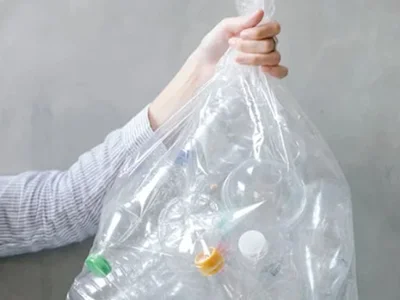All About Reclaim Waste
Table of ContentsThe Best Guide To Reclaim WasteRumored Buzz on Reclaim WasteNot known Details About Reclaim Waste The Basic Principles Of Reclaim Waste All About Reclaim Waste
Residential sewer waste refers to the waste and products from a domestic septic storage tank. The appropriate monitoring and disposal of residential sewage waste need liquid waste to be transferred to a sewage therapy plant where the correct techniques and tools are used to purify and dispose of waste.
Commercial waste usually consists of potential threats, such as combustible products or a blend of fluid and solid waste products, and calls for an extra sophisticated and thorough disposal procedure. The disposal of commercial waste usually involves the purification of waste before transportation to guarantee secure and appropriate disposal. Industrial waste is developed from byproducts and runoff of commercial procedures and manufacturing.
This kind of waste can not utilize the exact same sewage management transportation or processes as septic or business liquids. The industrial waste administration process calls for the evaluation and testing of fluid waste prior to it undergoes the disposal process (liquid waste removal melbourne). Overflow waste is the liquid waste that comes from runoff and excess stormwater in very booming locations or cities
Overflow waste can trigger contamination and flooding if not dealt with effectively. Discover more concerning drain cleansing and waste monitoring. Ensuring proper waste management can prevent catastrophes and reduce ecological damage. Both individuals in household setups and professionals in business or production sectors can take advantage of recognizing the procedures and guidelines of liquid waste administration.
The Facts About Reclaim Waste Revealed
Get in touch with PROS Services today to discover our waste administration and disposal solutions and the correct ways to care for the liquid waste you create.
(https://www.tumblr.com/reclaimwaste1/766851148823068673/at-reclaim-waste-were-a-national-solutions?source=share)Do you understand what occurs to your water when you draw the plug, purge the bathroom or drain the cleaning equipment? No? Well, it deserves understanding. This supposed 'wastewater' is not just a vital resource however, after treatment, will be launched to our land, waterways or the ocean. Used water from toilets, showers, baths, kitchen sinks, laundries and industrial processes is called wastewater.

water utilized to cool equipment or tidy plant and tools). Stormwater, a form of wastewater, is runoff that moves from agricultural and city areas such as roof coverings, parks, gardens, roads, paths and rain gutters right into stormwater drains pipes, after rainfall. Stormwater flows without treatment directly to neighborhood creeks or rivers, ultimately reaching the sea.
An Unbiased View of Reclaim Waste
In Queensland, the majority of wastewater is treated at sewer treatment plants. Wastewater is moved from residential or industrial sites through a system of sewage systems and pump terminals, recognized as sewage reticulation, to a sewer treatment plant. Neighborhood federal governments build, keep and operate most sewer treatment plants. Operators are licensed under the Environmental Defense Act 1994 to release treated wastewater at an appropriate ecological requirement into waterways.
The Department of Natural Resources encourages city governments concerning handling, operating and maintaining sewerage systems and treatment plants. In unsewered areas, city governments may call for homeowners to install specific or home sewage treatment systems to deal with residential wastewater from toilets, cooking areas, bathrooms and laundries. The Division of Natural Resources authorises making use of house systems when they are proven to be reliable.
In some new subdivisions, treatment of some stormwater to eliminate clutter, sand and gravel has actually started using gross toxin catches. Wastewater treatment happens in four stages: Removes solid matter.
Makes use of little living organisms understands as micro-organisms to damage down and get rid of staying liquified wastes and great fragments. Micro-organisms and wastes are included in the sludge.
8 Easy Facts About Reclaim Waste Described
Nutrient elimination is not available in all sewer treatment plants since it requires expensive specialised devices. It is ending up being more typical in Queensland. Clear fluid effluent generated after therapy might still consist of disease-causing micro-organisms. If this effluent is released right into waterways such as rivers or the sea, the micro-organisms will ultimately die out.

This usually means wastewater needs to be treated or pollutants eliminated prior to it can be discharged to waterways. A lot of wastewater moves into the sewage system. Under the Act, neighborhood governments provide approvals and permits for eco relevant tasks (Periods) entailing wastewater launches that might have a neighborhood influence. The department carries out authorizations and permits to ERAs including wastewater launches that may have a regional or statewide effect.
The Best Strategy To Use For Reclaim Waste
Or else, samples are taken for laboratory analysis. Typically many examinations are required to develop the levels of each of the different pollutants such as oils, heavy metals and chemicals in water. Monitoring provides factual information concerning water high quality and can verify that licence conditions are being satisfied. The information acquired with tracking provides the basis for making water quality choices.